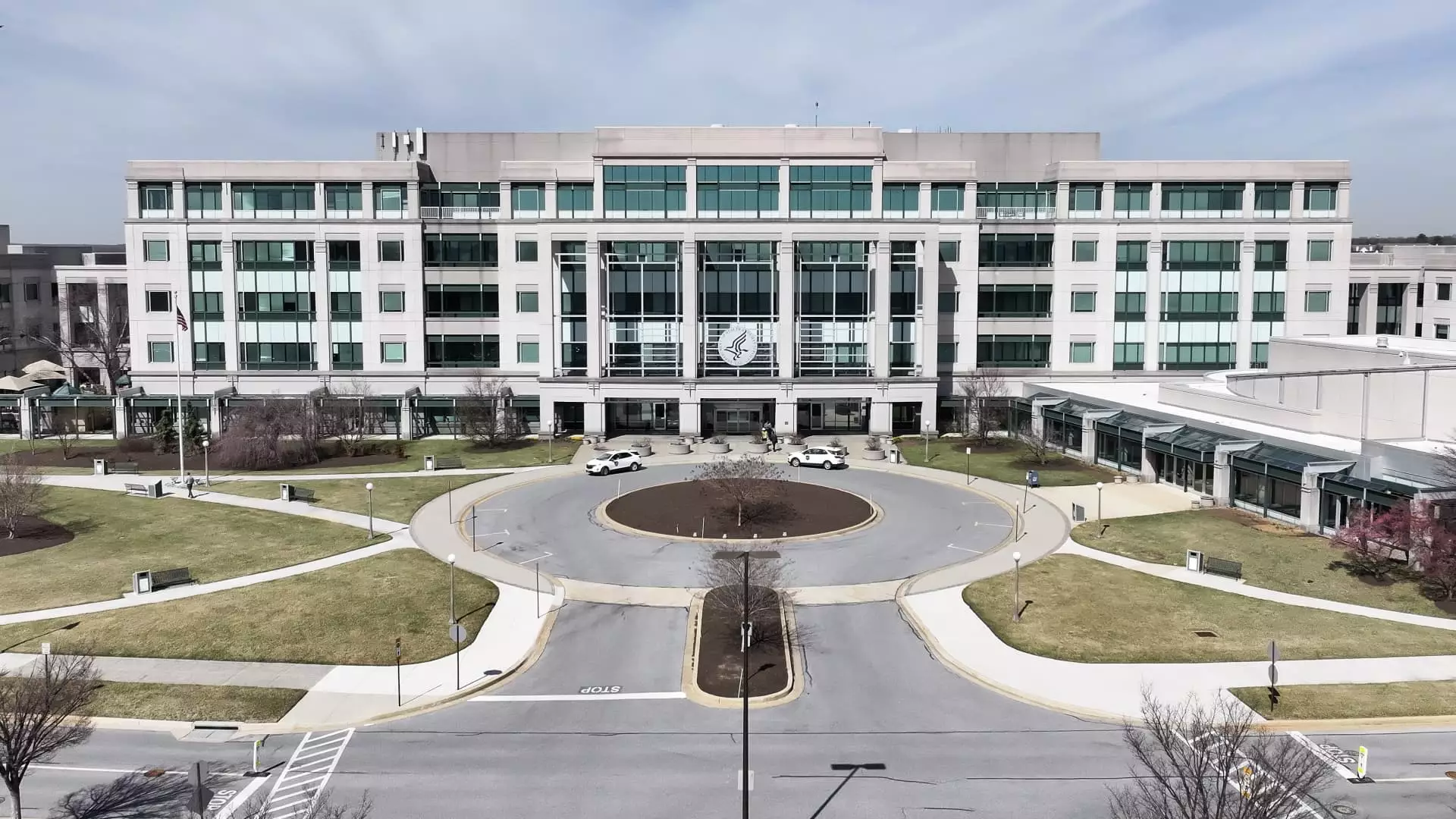The recent job cuts instituted by the Centers for Medicare & Medicaid Services (CMS) under the direction of Robert F. Kennedy Jr. signal a significant shift in the landscape of U.S. healthcare. As the newly minted leader of the Department of Health and Human Services (HHS), Kennedy’s aggressive restructuring plan has the potential to not only reduce bureaucratic inefficiencies but, alarmingly, to undermine critical support systems for minority populations. This is not merely a fiscal decision; it reflects an emerging paradigm that could set back progress in public health under the guise of austerity.
The Reality of Job Cuts
At the core of Kennedy’s vision is a plan to eliminate approximately 10,000 jobs within HHS, including 300 at CMS alone. Such drastic measures could have cascading effects, especially on minority health offices that have been pivotal in addressing disparities in health outcomes. These offices work tirelessly to engage with local and federal partners to improve health access for marginalized populations. The decision to slash these positions not only eradicates essential services but also raises questions about the sincerity of the government’s commitment to equitable healthcare.
During an all-hands meeting, CMS acting Administrator Stephanie Carlton conveyed the gravity of the cuts while also attempting to downplay their significance. She suggested that certain positions might be reinstated as part of a retrospective recognition of “mistakes.” However, this is a flimsy reassurance at best. In a climate where the U.S. is grappling with pressing public health crises—including a measles outbreak—these cuts come across as reckless and shortsighted.
Austerity vs. Equity
The ideological underpinnings of these cuts seem entwined with a broader conservative agenda that views diversity, equity, and inclusion (DEI) initiatives with skepticism. The dismantling of the Office of Minority Health can be seen as not just a budgetary strategy but as part of a concerted effort to sideline programs that provide essential resources to underserved communities. This raises a critical question: Can we genuinely advance public health while simultaneously stripping away the very resources dedicated to promoting health equity?
The Affordable Care Act, which authorized the Office of Minority Health over a decade ago, set a precedent for federal involvement in fostering health outcomes across diverse populations. Shuttering this office entirely could potentially violate statutory law while simultaneously signaling a retreat from the principles of equity in healthcare.
The Ripple Effects of Cuts
Carlton indicated that while certain job cuts were necessary to achieve operational efficiency, the impact on the Office of Program Operations & Local Engagement has been particularly profound. This office is instrumental in overseeing Medicare and Medicaid programs, acting as a liaison between beneficiaries and the agency. By targeting areas with overlapping missions, the restructuring could exacerbate the fragmentation of care for vulnerable populations already struggling within a complex healthcare system.
In practical terms, this could lead to siloed operations where communication breaks down, further complicating the lives of those dually eligible for Medicare and Medicaid. The mere reallocation of responsibilities to other divisions does little to alleviate the loss of institutional knowledge and relationships built painstakingly over years. A system that is designed to promote cooperation could swiftly devolve into one where vulnerable groups fall through the cracks.
Contradictions in Leadership
The appointment of celebrity figure Dr. Mehmet Oz as the new CMS head throws additional complexity into the mix. Once celebrated as “America’s Doctor,” Oz’s controversial promotion of dubious health products raises concerns about the level of expertise and trustworthiness in leading such a key healthcare agency. If the leadership is lacking credibility, the decisions made will inevitably be questioned, undermining public confidence in the very systems meant to protect health and wellbeing.
As staff confront an uncertain future amidst these cuts, the morale at CMS is likely to erode. Employees are currently undergoing the trauma of layoffs, and yet they are also facing the specter of leadership that may not prioritize evidence-based health solutions. The overlap of celebrity and politics invites skepticism about whether health policy decisions will be governed by data or driven by trending narratives.
The current trajectory set by the HHS under Kennedy and his subsequent actions at CMS present a compelling concern for the health landscape in the United States. The intersection of job cuts, minority health office closures, and the ideological drive against DEI initiatives poses a grave threat to equitable healthcare delivery. As the nation confronts significant health crises, these decisions could reverberate through the public health infrastructure, potentially jeopardizing the lives of millions who rely on these critical services for equitable care.

